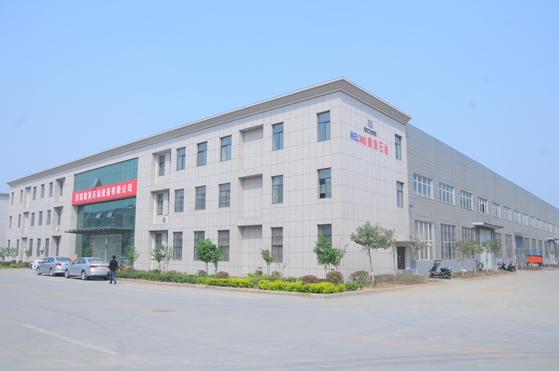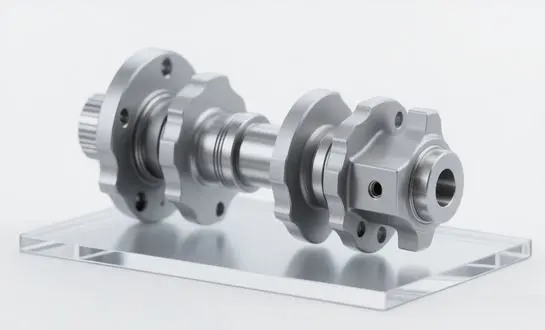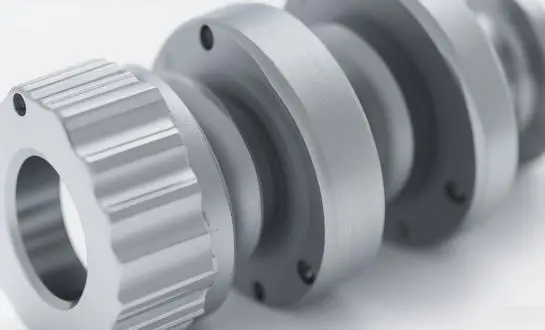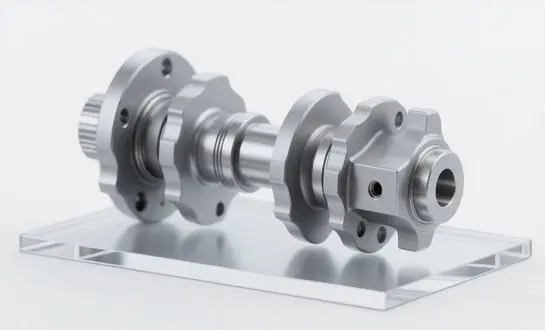How do forged steel shafts extend equipment lifespan?
Enhanced Structural Integrity
Forged steel shafts possess an unparalleled level of structural integrity that significantly contributes to extending equipment lifespan. The forging process aligns the metal's grain structure, eliminating internal voids and inconsistencies that can lead to premature failure. This results in a homogeneous microstructure that enhances the shaft's ability to withstand stress, fatigue, and impact. Consequently, machinery equipped with forged steel shafts experiences fewer breakdowns and requires less frequent replacements, leading to improved overall equipment longevity.
Superior Mechanical Properties
The mechanical properties of forged steel shafts are vastly superior to those of their cast or machined counterparts. The forging process imparts higher tensile strength, improved ductility, and enhanced toughness to the material. These properties enable forged shafts to maintain their integrity under extreme conditions, such as high torque, rapid temperature fluctuations, and cyclic loading. As a result, equipment utilizing forged steel shafts can operate more reliably for extended periods, even in demanding industrial environments.
Resistance to Wear and Deformation
Shaft forging steel shafts exhibit exceptional resistance to wear and deformation, which is crucial for maintaining equipment performance over time. The dense, uniform grain structure achieved through shaft forging enhances the material's ability to resist abrasion, erosion, and plastic deformation. This translates to reduced wear rates, minimal dimensional changes, and sustained precision in critical components. Equipment fitted with shaft forging steel shafts maintains its operational accuracy and efficiency for longer periods, thereby extending its useful lifespan and reducing the frequency of maintenance interventions.
Global demand for forged shafts in oil, gas, and mining
Critical Applications in Extreme Environments
The oil, gas, and mining industries operate in some of the most challenging environments on Earth, demanding components that can withstand extreme pressures, temperatures, and corrosive conditions. Shaft forging steel shafts have become indispensable in these sectors due to their ability to perform reliably under such harsh circumstances. In offshore drilling operations, for instance, shaft forging shafts are utilized in subsea equipment, where they must resist the corrosive effects of saltwater and withstand enormous pressures. Similarly, in mining operations, shaft forging shafts are crucial components in heavy machinery, such as excavators and conveyors, where they endure constant stress and abrasive conditions.
Increasing Exploration and Production Activities
As global energy demands continue to rise, there has been a corresponding increase in exploration and production activities in the oil, gas, and mining sectors. This expansion has fueled a growing demand for high-quality, durable components like forged steel shafts. The push for more efficient and cost-effective operations has led companies to invest in equipment that offers superior performance and longevity. Forged shafts, with their exceptional mechanical properties and resistance to failure, align perfectly with these requirements, making them a preferred choice for new and upgraded machinery in these industries.
Technological Advancements in Forging Processes
The global demand for forged shafts in oil, gas, and mining has also been bolstered by continuous advancements in forging technology. Modern forging processes, such as precision forging and near-net-shape forging, allow for the production of shafts with increasingly complex geometries and tighter tolerances. These innovations have expanded the application range of forged shafts, enabling their use in more specialized and demanding roles within these industries. Additionally, improvements in material science have led to the development of alloys specifically tailored for forging, further enhancing the performance characteristics of forged steel shafts in oil, gas, and mining applications.
Corrosion-resistant coatings for forged steel shafts
Advanced Coating Technologies
The development of advanced coating technologies has significantly enhanced the corrosion resistance of shaft forging steel shafts, expanding their applicability in aggressive environments. Techniques such as Physical Vapor Deposition (PVD) and Chemical Vapor Deposition (CVD) allow for the application of ultra-thin, highly adherent coatings that provide exceptional protection against various forms of corrosion. These coatings, often composed of materials like titanium nitride, chromium nitride, or diamond-like carbon, not only shield the underlying steel from corrosive agents but also improve surface hardness and reduce friction, further enhancing the shaft forging's performance and longevity.
Electroless Nickel Plating
Electroless nickel plating has emerged as a popular corrosion-resistant coating for forged steel shafts, particularly in applications involving exposure to chemical or marine environments. This process deposits a uniform layer of nickel-phosphorus alloy on the shaft's surface without the use of electrical current. The resulting coating offers excellent corrosion resistance, high hardness, and good wear resistance. Moreover, electroless nickel plating can be applied to complex geometries with consistent thickness, making it ideal for intricately shaped forged shafts used in specialized industrial equipment.
Nanocomposite Coatings
The advent of nanocomposite coatings represents a cutting-edge approach to protecting forged steel shafts against corrosion. These coatings incorporate nanoparticles of materials such as silicon carbide or alumina into a metal or polymer matrix, creating a barrier with exceptional corrosion resistance and mechanical properties. Nanocomposite coatings can be tailored to provide specific combinations of properties, such as high hardness, low friction, and chemical inertness, in addition to corrosion protection. This versatility makes them particularly valuable for forged steel shafts used in diverse industrial applications, where multiple performance criteria must be met simultaneously.
In conclusion, the benefits of forged steel shafts for global industries are undeniable. Their superior strength, durability, and performance characteristics make them essential components in a wide range of critical applications. From extending equipment lifespan to meeting the demanding requirements of oil, gas, and mining operations, forged steel shafts continue to prove their worth. The ongoing advancements in shaft forging technologies and corrosion-resistant coatings further enhance their capabilities, ensuring that forged steel shafts will remain at the forefront of industrial innovation for years to come. As industries worldwide strive for greater efficiency, reliability, and sustainability, the role of forged steel shafts in achieving these goals cannot be overstated. For more information on high-quality forged steel shafts and their applications, please contact us at oiltools15@welongpost.com. Welong, your trusted partner in delivering exceptional forged steel solutions for global industries.





